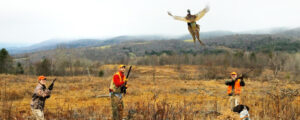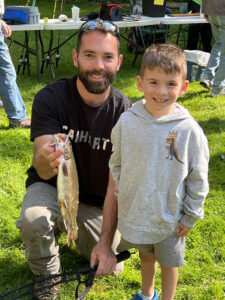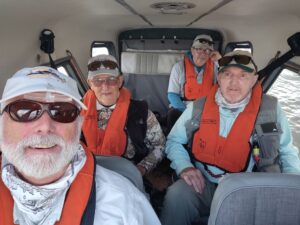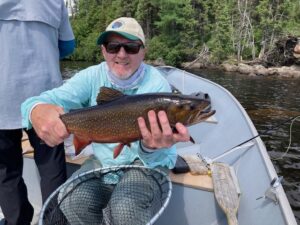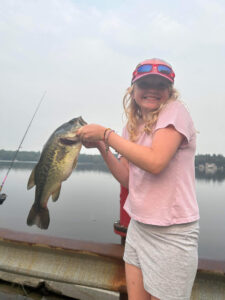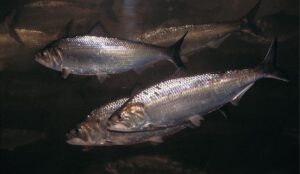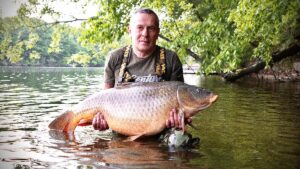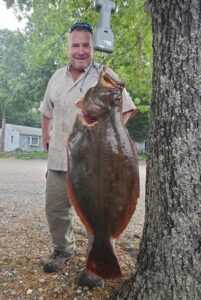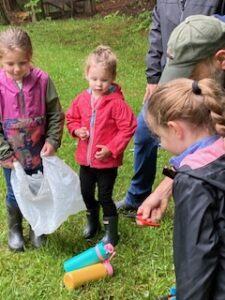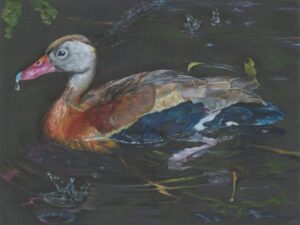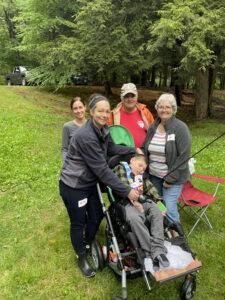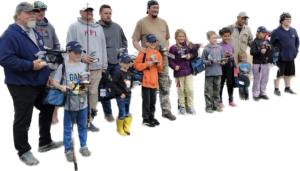The Early Canada Goose hunting season (statewide) began on Friday, September 1 and runs through September 22. For Early Canada Goose season only, hunting hours are 1/2 hour before sunrise to 1/2 hour after sunset. The daily bag limit is 15 and the possession limit is 45. The reason for this early season and the large numbers of geese allowed to be taken is to reduce the large local resident population that is befouling our lawns and beaches. The regular goose hunting season in the Berkshires opens on October 10 and runs through November 25. It shuts down through the shotgun deer hunting season and then reopens December 11 through December 14. The daily bag on that season is 3 and the possession limit is 9.
There are many regulations regarding goose hunting and rather than to list many of them out, I direct your attention to 2023 – 2024 SEASON DATES & BAG LIMIT provided at https://www.mass.gov/doc/2023-2024-migratory-game-bird-regulations.
I will note that a 15-goose harvest limit for one day and a 45-bird possessive limit is high. Please make sure the geese won’t go to waste (see wanton waste comments below) and that you or someone else consumes them. The meat can be tough, so you might want to search out grandma’s old recipes or perhaps you can make goose jerky.
The early Black Bear hunting season opens statewide on September 5 and runs through September 23. Those hunting hours are 1/2 hour before sunrise to 1/2 hour after sunset. There are no blaze orange requirements during this season. Hunting implements allowed during this season are rifles, revolvers, muzzleloaders and archery equipment. There are also many regulations governing bear hunting and instead of listing all of them out here, I direct your attention to pages 30 and 31 of the Massachusetts Fishing and Hunting laws (commonly referred to as the abstracts).
Please remember: It is unlawful for hunters to intentionally, or knowingly leave a wounded or dead game animal in the field or the forest without making a reasonable effort to retrieve and use it. Each retrieved animal shall be retained or transferred to another until processed or used for food, pelt, feathers, or taxidermy. This does not apply to animals unfit for consumption or use—animals and their parts that are damaged, destroyed, decayed, rotting, diseased, or infected.
No hunting is allowed on Sundays in Massachusetts.
Here’s hoping you have safe and successful hunts.
Wear your life jackets, it’s the law
Although not mandatory until September 15, waterfowl hunters who navigate waters to get to their duck/goose blinds might be well advised to wear their Personal Floatation Devises (PFD’s). MassWildlife cautions us that all canoe or kayak occupants must wear a U.S. Coast Guard approved PFD from September 15 to May 15, and that includes waterfowl hunters.
Archery deer hunting season opening date
I have been getting calls and messages inquiring as to whether the deer archery hunting season is opening on October 2 this year. These inquiries were brought about by the recent public hearings regarding the extension of the archery deer hunting season two weeks in Wildlife Zones 1 – 9.
According to DFW Western District Supervisor Andrew Madden, if approved, the regulations would likely go into effect in 2024. There are still steps in the process including a review of comments and decision by the Fisheries and Wildlife Board. If approved by the Board, it would still need additional administrative approval within other branches of State government before it could be officially enacted. That process almost certainly won’t be completed before the season starts so hunters should plan on 2024, if the changes are approved.
He promised that MassWildlife will do its best to keep hunters posted about the process and a timeline if the proposed changes are approved.
EPO Lt. Tara Carlow honored
Congratulations to EPO Lt. Tara Carlow who was chosen to receive the Massachusetts 2022 CLECA (Conservation Law Enforcement Chiefs’ Association) Outstanding Officer of The Year Award in Conservation Law Enforcement and Public Safety. The award ceremony took place this past May 16 at MassWildlife Field Headquarters in Westborough. As the Lieutenant for our region, she oversees 33 towns that are broken down into 6 smaller districts (4-6 towns each) with direct subordinates of 5 officers (only have 3 right now) and 1 sergeant covering those. There is a Western Captain that oversees all of Massachusetts west of the Quabbin, but the position is currently vacant.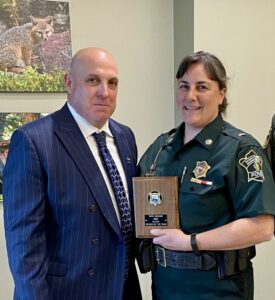
This hardly comes as a surprise to the delegates of the Berkshire County League of Sportsmen who are fortunate enough to have her presence at its monthly meetings. She makes sure the League, and through its minutes, the area outdoor sports community is kept apprised of any new environmental laws, updates on EPO’s successes in apprehending outlaws, information on any upcoming Boating Safety Classes or ATV classes, and more. It is so helpful to have Lt Carlow present at those meetings answering any legal questions that we may have. I have been a delegate in the League for over 20 years now and we never had an EPO regularly attend.
At the risk of embarrassing Lt. Carlow, please allow me to cite some comments about her in a 3-page nomination by another officer, which says it all. I have changed the term “the nominee” to “she” or “her”.
She is a shining star for all others in Massachusetts Environmental Police (MEP) in regards to attitude and sets a great example. She is continually asked by the Agency to handle more responsibilities, which were accepted with zero complaints; she fully realizes the breath of MEP‘s job and changes their schedule constantly to attend search and rescue, meetings, training, and large scale operations without a single complaint, and explained the reasons for same to their subordinates; she understand the mission statement, their role in carrying it out in a manner that everyone knows the nominees proud to be an EPO .
Whether it is a simple response to a citizens question, ensuring subordinate is carrying out tasking, or a complex multi facet investigation, she excelled at every challenge sent their way; she sets a great example to others in MEP by handling so many various patrol issues, proving self- initiation is often the best way to determine problem areas; she spent a specific amount of time assisting DCR, MassWildlife, and fishing and boating access and documenting numerous violations, and/or problems located on their respective properties. She excels at the hunting enforcement aspect of the job. Any complaint is looked into and she spends significant time ahead of each season researching previous problem areas and providing that information to the Board to allow them the best chance to be successful, multiple baiting cases were made from the intelligence. She continued to excel in making cases involving illegally taken bears; she spearheads one of the better PR programs across a Commonwealth ensuring subordinates are present to assist with their responsibilities; she ensures MEP is well represented, and has a positive and professional image among the region citizens. If needed for one event on almost any topic she would be the first person I would choose to represent the Agency. She is constantly advising others of new material or technology that comes out involving the job, allowing MEP to better serve the public. The amount of knowledge on the laws on specific subjects. At this point (her) career is well above normal.
“She is exactly what a CLECA nominated officer should be, well rounded, a positive attitude, knowledgeable, self-reliant, professional, caring, and willing to assist subordinates to become their best. MEP is better for them being here.”
Fishing Derby
The Friends of the Berkshire Hatchery in Hartsville-New Marlborough is scheduled to have its last Youth Fishing Derby of this year next Saturday, September 9 from 9:00 to 10:30 am at its Lower Pond at the Berkshire National Fish Hatchery, 240 Hatchery Road, Hartsville, MA. Children aged 13 and under must be accompanied by an adult. No child goes away empty handed.

